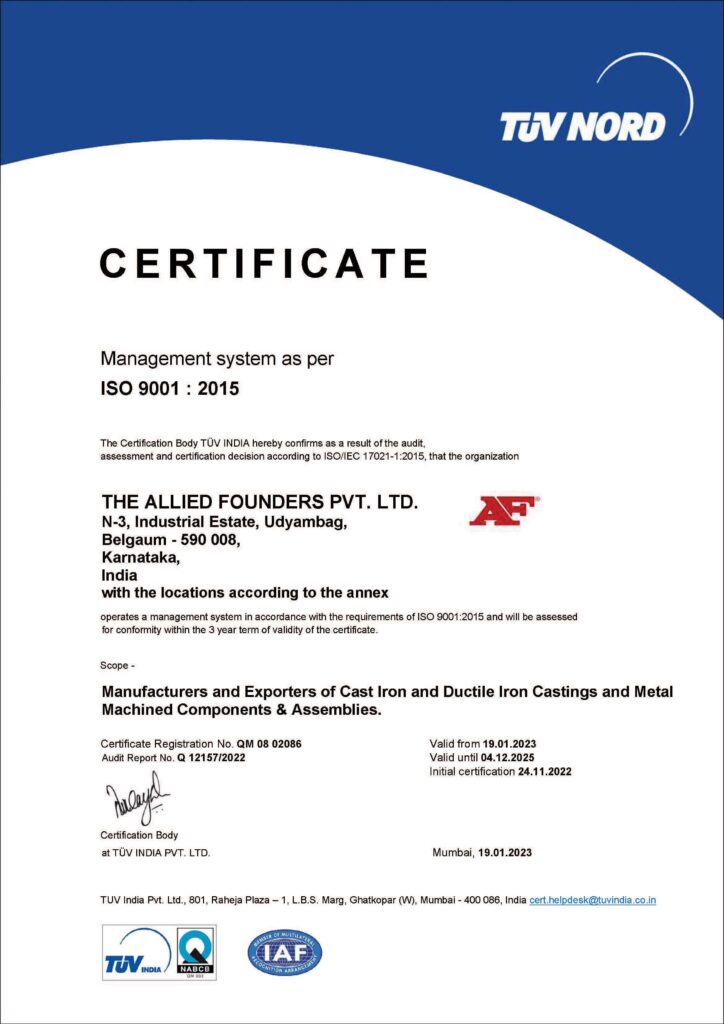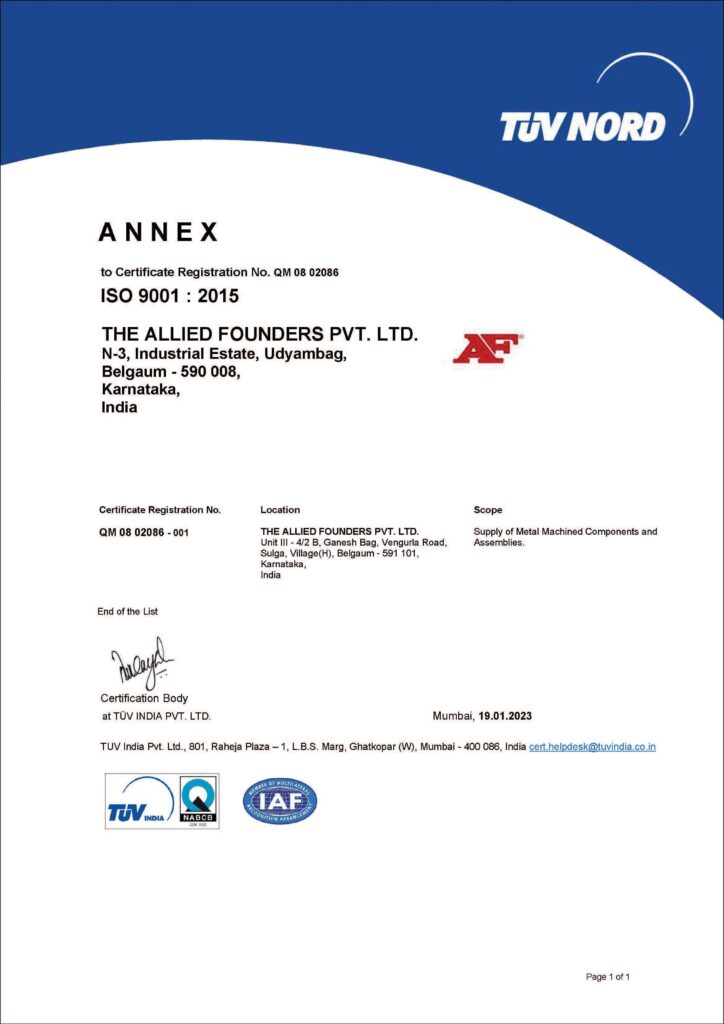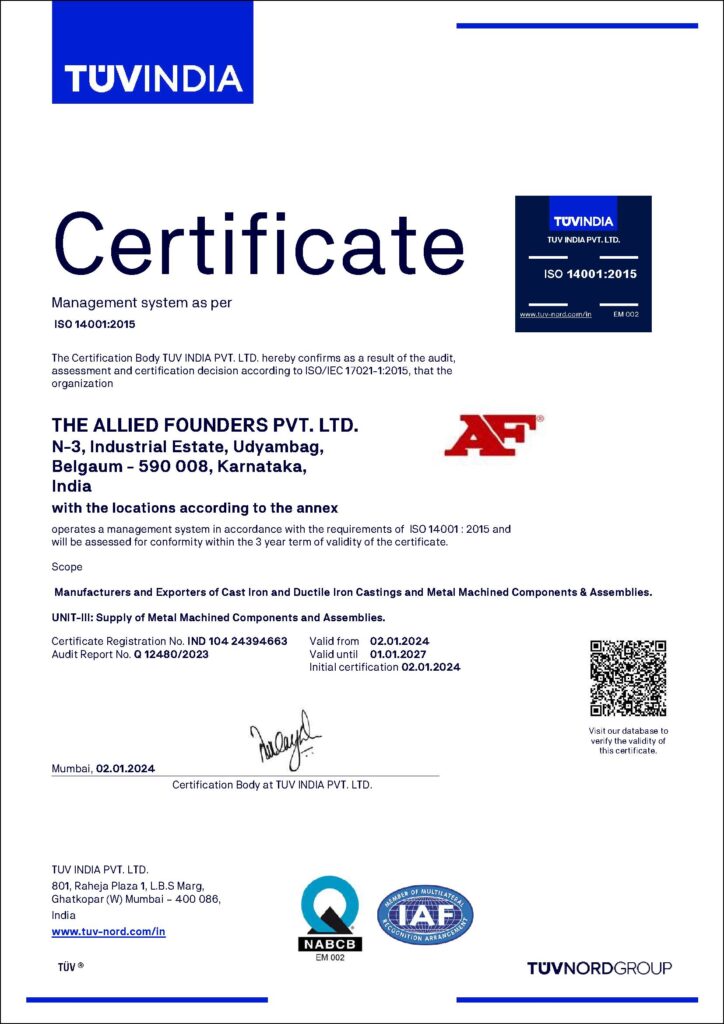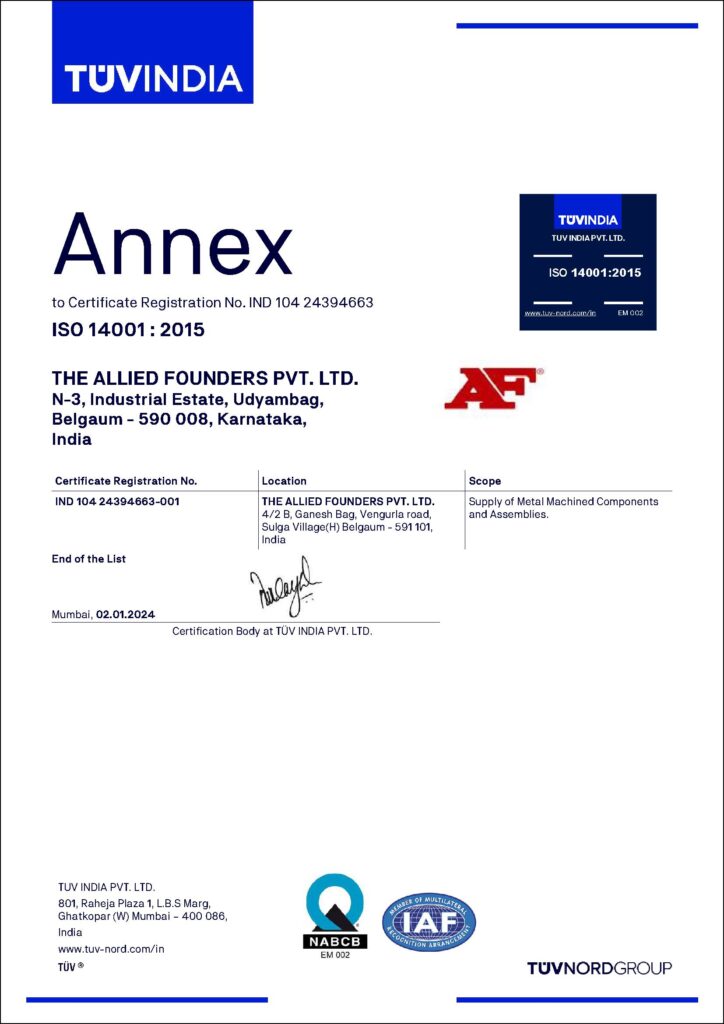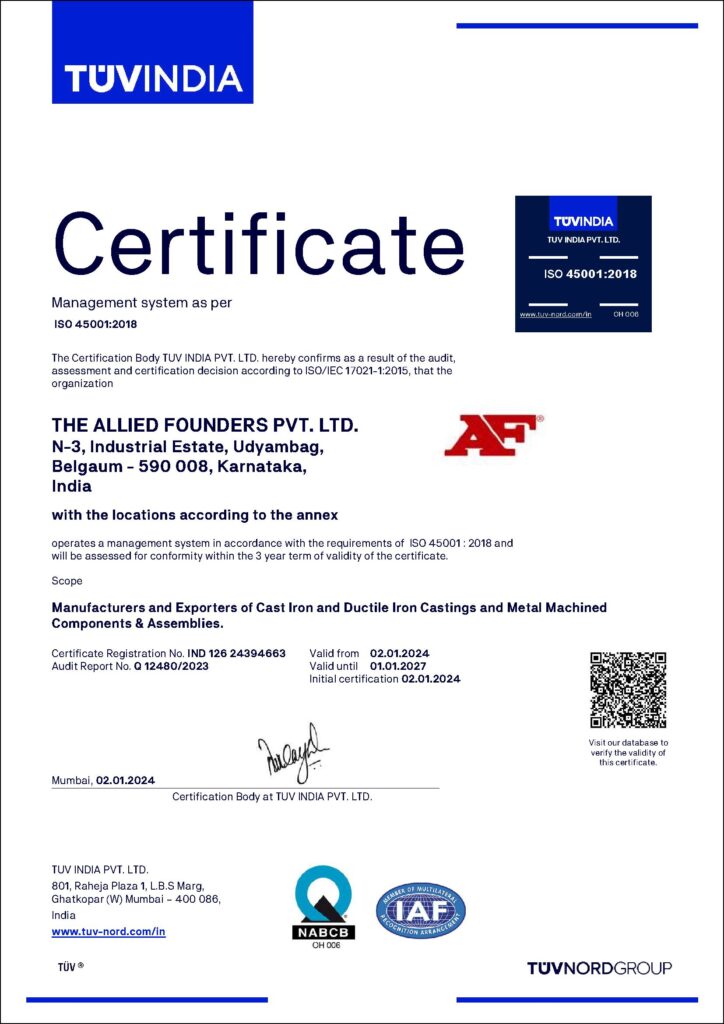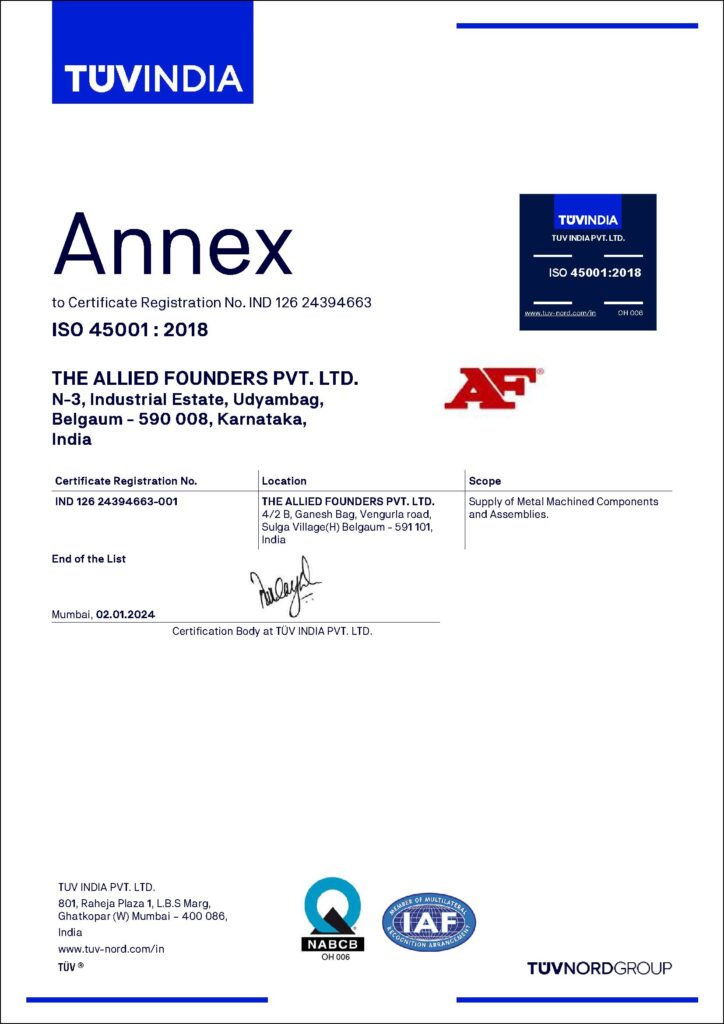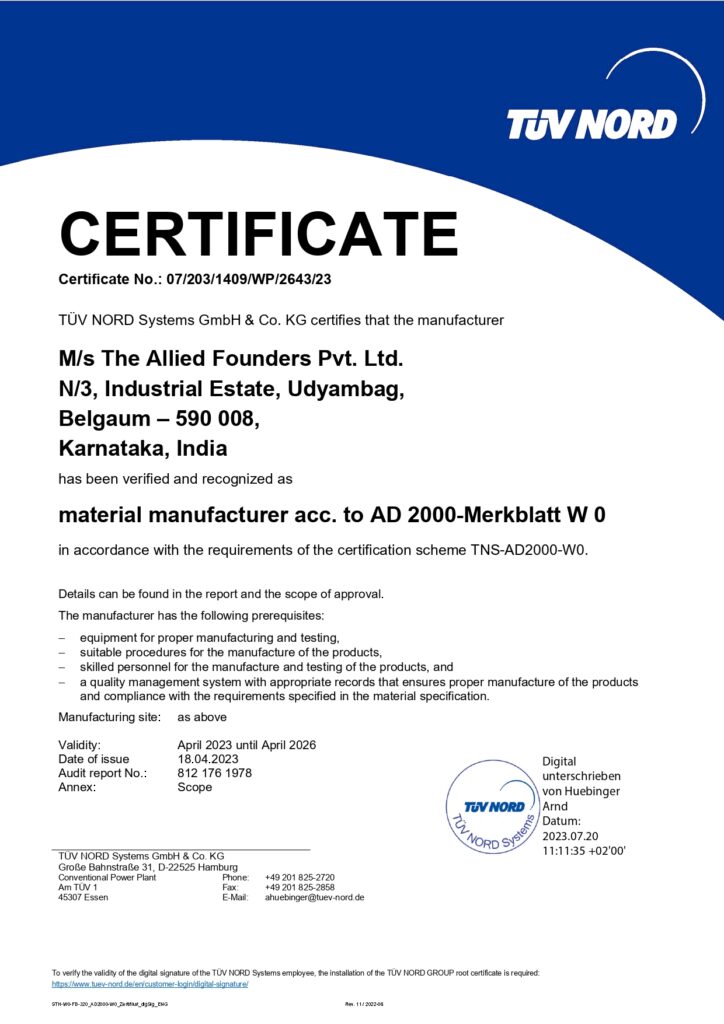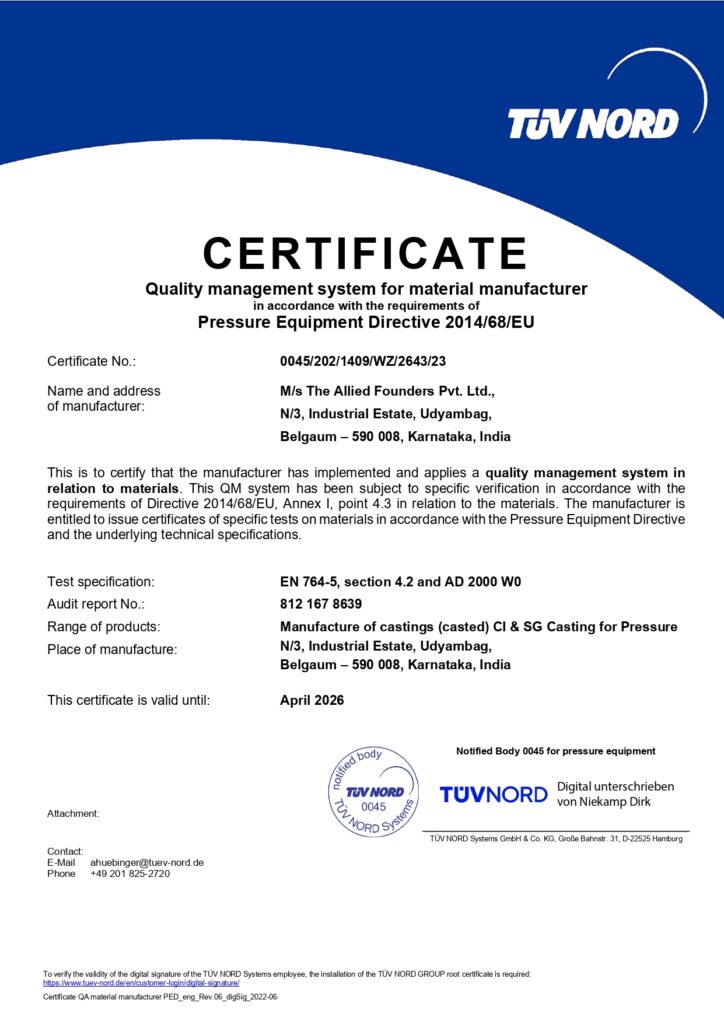- +91-831-2441057
- enquiry@alliedfoundersindia.com
- Mon - Sat: 8:30 - 17:30
- N-3, Industrial Estate, Udyambag, Belgaum, Karnataka, India – 590 008
Certifications
Industry certifications are credentials that validate an individual’s knowledge and skills in a particular field or industry. They are typically awarded by professional organizations, vendors, or associations and demonstrate that an individual has achieved a certain level of expertise in a specific area. Obtaining industry certifications can be beneficial for individuals as it can enhance their professional credentials, increase their earning potential, and improve their job prospects. For employers, industry certifications can demonstrate that their employees have the necessary skills and knowledge to perform their jobs at a high level, which can lead to increased productivity and efficiency.
RECENT CERTIFICATIONS UPGRADED

PED CERTIFICATION
Certified on 18th April 2023
The Pressure Equipment Directive (PED) is European Legislation aimed at removing the technical barriers to trade relating to the supply of pressure equipment throughout Europe. The PED is based on Essential Safety Requirements (ESRs) that govern design, manufacturing, inspection, and testing.
PED affects most equipment that will be placed on the market in the European Economic Area (EEA) designed for pressures above 0.5 bar g or 7.25 psi g.

ISO 14001:2015
Certified on 22nd November 2023
ISO 14001:2015 is an international standard that provides a framework for an environmental management system (EMS).
The standard sets out a systematic approach to environmental management, with the aim of improving an organization’s environmental performance. It requires organizations to identify and control their environmental impact, and to continually improve their environmental performance.

ISO 45001:2018
Certified on 22nd November 2023
ISO 45001:2018 is an international standard that provides a framework for an Occupational Health and Safety Management System (OH&S MS).
The standard sets out a systematic approach to managing health and safety hazards and risks, with the aim of preventing work-related injury and ill health, as well as promoting worker well-being. It requires organizations to identify and control their health and safety risks, and to continually improve their OH&S performance.

